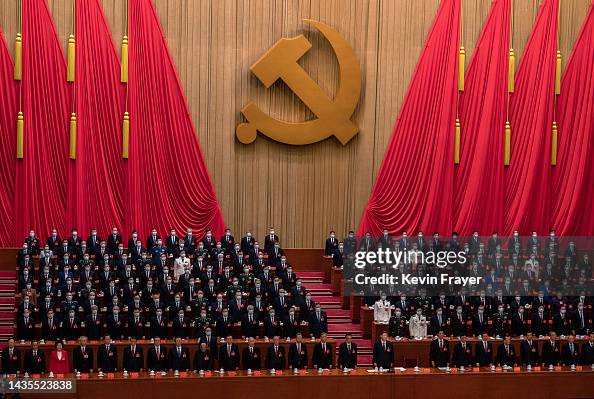The Communist Party of Ireland (CPI) recently had the opportunity of joining the Friends of Socialist China in a delegation to the People’s Republic of China. The visit took in Beijing as well as several cities in Zhejiang and Jilin provinces. Much of the visit focused on the founding mission of the Communist Party of China (CPC) and how it relates to China’s socialist modernisation in the new era.
The delegation visited the Beijing HQ of the 12345 hotline. The 24-hour service allows people to ring or text in a question, issue or even make a complaint. Calls can vary from being about litter, noise complaints, traffic, amenities, or, as on our visit, complaints about pandas in a zoo not receiving enough bamboo! The focus is on addressing any and all issues that the people face, with a regular collation of the trending issues sent to local officials.
All provinces in China have the service, with a very high satisfaction rating across the board, and services available in several languages. Almost all phone operators, managers and admin staff are members of the Communist Party. It is but one example of how the Party serves the people.
We also had the opportunity to visit the famous “Red Boat” in Jiaxing city in Zhejiang province. This was where 12 people founded the Communist Party of China in 1921 – after their original meeting in Shanghai was disrupted by police. Accompanying the boat itself was the impressive South Lake Revolutionary Memorial Hall which contained exhibits on the CPC’s early years and development from a dozen members to nearly 100 million today.
There was another impressive visit to the Jiaxing Party-Masses Service Centre. It provides meeting spaces for community organisations and allows local people to avail of medical consultations on-site free of charge. The centre facilitates mental health services including counselling – again, free of charge. While still a pilot program, the plan is for other service centres to learn from and emulate the Jiaxing centre.
On several occasions, delegates participated in sessions with Chinese comrades on topics related to China’s modernisation. China met its centennial goal of eliminating absolute poverty in 2021. It has taken important steps to implement Common Prosperity and the reduction of the income gap between rich and poor, including between rich and poor regions. This includes the rolling out of universal health insurance policies such as a new rural co-operative medical system which covers 60-80% of health costs for just 10-20 dollars a year. The remaining costs are covered by insurance provided by state insurance companies.
In all areas, especially Beijing, one could seen the fruits of what the CPC calls “Beautiful China” in the green trees which are almost on every street. Far from the myth of a polluting superpower, China is leading the way in renewable energy. In Jilin province, delegates were told how the province had just developed a hydrogen-powered train, the very first in the world.
Jilin is an industrial heartland of the north-east. Common Prosperity has seen Jilin become revitalised in recent years, with growth in several important areas coming above the national average. Of significance is that the emphasis is on clean energy and eco-friendly industry in that revitalisation.
Delegates got to visit the city of Siping, a major site in the Chinese Civil War. After visiting the local museum, delegates got to admire the local revolutionary monuments in the public square as well as to observe the sight of elderly people enjoying themselves in the public open-air gym. It says a lot when those of us coming from individualist anti-social countries are genuinely astounded at a sight which is normal for all parks and public spaces in China. We also got to visit a co-operative in Jilin province as well as have an interesting exchange with staff and students at the School of Marxism in Jilin University.
This is but a small overview of the delegation’s experience, and does not cover everything. China, the CPC and Chinese people, take Marxism seriously, in the education system, in the state, as well as in public life. People are at the centre of decision-making, not profit. China puts the “social” into socialism with its collective nature, encouraged at all levels.
In China one can see clear evidence of the above in the lack of crime, the absence of homelessness, the absence of addiction in public spaces and the green trees all around. China’s modernisation can be best summed up in a quote by President Xi Jinping:
“Western modernisation was fraught with bloody crimes such as war, slave trade, colonisation and plunder which inflicted untold misery on developing countries. Having suffered from aggression, bullying and humiliation by Western powers, we Chinese are keenly aware of the value of peace and will never follow the beaten path of the West. We should never oppress other nations or loot the wealth and resources of other countries in any form.”






